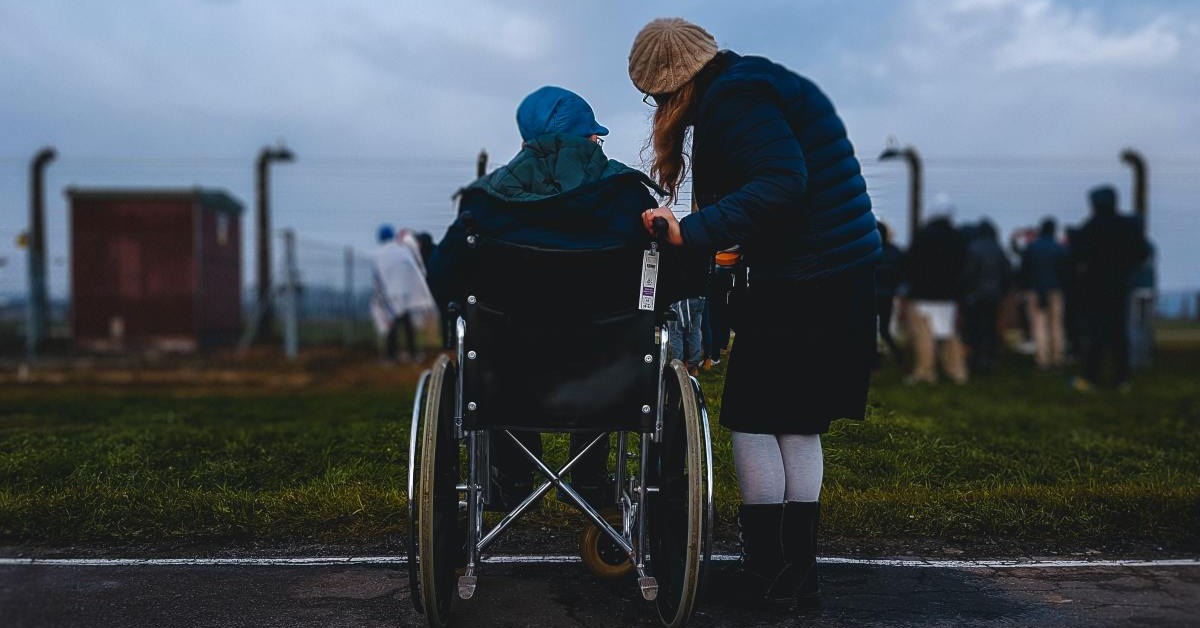
Where Do Epidemiologists Work?
Epidemiologists work in many settings, including hospitals, universities, and federal, [...]

By 2030, the baby boomer generation will reach the traditional retirement age of 65; by 2034, the nation’s demographics will include more older adults than children for the first time in US history. America is aging. Healthcare systems will need to adjust their services to meet a new set of demands.
Yale School of Medicine professor of emergency medicine Ula Hwang argues that hospital emergency departments across the country should earn senior-friendly accreditation. In doing so, hospitals can ensure that their emergency medical services include geriatric care and meet specific standards regarding staffing, equipment, education, and protocols. Older adults, according to Hwang, are “a special population because of physiological, medical, and functional differences” that make their needs quite different from the majority of younger patients they treat.
Hwang is particularly focused on treating older adult patients with dementia. She anticipates that emergency departments will be treating significantly greater numbers of older adults with dementia, so ER staff—including social workers—will require adequate training in the care and treatment of people with this neurological condition.
Hwang warns that the number of older adults being cared for in our nation’s emergency rooms will double or triple in coming years and predicts geriatric emergency care will be “an area that is ripe for growth.” In addition to the urgent need for qualified ER medical staff, the demand for medical social workers in the coming decade is projected to be high. The U.S. Bureau of Labor Statistics (BLS) forecasts that the medical social work field will grow by 13 percent between 2020 and 2030 and the mental health and substance abuse social work field will grow by 15 percent during this period (for comparison, the average growth of all occupations is predicted at 8 percent).
A social worker’s skill set is geared to the environment or milieu in which they practice and the populations and people with whom they work. Medical social workers are specifically trained to work in healthcare settings. But what exactly do they do?
In this article, we answer the question what does a medical social worker do? As well, we cover:
Medical social workers belong to a team of professionals—doctors, nurses, therapists, pharmacists, and administrators—responsible for caring for patients in healthcare settings. Medical social workers operate anywhere that medical care is dispensed: hospitals, clinics, intermediate/managed care centers, assisted living facilities, nursing homes, and hospices. They work in primary patient care, specialty care in areas like geriatrics and oncology, and in mental healthcare and alcohol and other drug abuse (AODA) treatment programs.
Medical social workers help care for inpatients but they are equally dedicated to ensuring that people receiving healthcare services as outpatients—whether in a home healthcare context or an intermediate care facility—also receive appropriate and effective follow-up care. They assess and help address patient needs, check on patients’ well-being and help them cope with situational issues, make referrals, ensure they understand the impact of their medical issues and treatment plans, and facilitate discharge planning.
A medical social worker’s primary mission is to provide advocacy for patients and their loved ones. That’s not where their duties end, however. They also provide valuable service to other stakeholders in a healthcare or hospital setting by ensuring that information about people in their care (and the system treating them) flows in all directions. Crucially, medical social workers serve as conduits among the various stakeholders involved in a patient’s care: doctors, nurses, family members, caregivers, administrative figures, and insurance providers. They ensure that patients understand what their medical professionals are telling them (and vice versa), and identify any assumptions that hamper communication to help minimize any disconnects between patients/families and the healthcare system. A medical social worker helps ensure that the medical team is providing optimal and effective healthcare to patients.
As part of their discharge planning, medical social workers often refer patients to social services, connecting them with the appropriate agencies and helping them fill in and file paperwork, making them aware of their insurance options, and educating them about programs and community resources in their area that proactively support their physical and mental health (food programs, exercise programs, support groups, etc.).
In short, medical social workers operate at the center of the healthcare system. This centrality is particularly useful for gaining a working knowledge of the overall system. It places them in a position to critique which programs and initiatives work and those that don’t.
| University and Program Name | Learn More |
|
Virginia Commonwealth University:
Online Master of Social Work
|
If you’ve decided you want to help people by becoming a healthcare social worker, what steps do you need to take?
If you don’t already have a bachelor’s degree, you might consider earning a Bachelor of Social Work (BSW). A BSW or BA in a related subject—like sociology or psychology—is typically enough to qualify you for an entry-level social work position. However, if you plan to advance in the field and/or enter clinical social work practice, you need to pursue a master’s degree in social work.
When researching MSW programs, make sure you look for schools accredited by the Council on Social Work Education (CSWE), as are the programs at Tulane University of Louisiana and Virginia Commonwealth University.
All MSW programs require fieldwork in addition to academic study. There simply isn’t any substitute for being out in the thick of things, observing professional social workers first-hand and interacting with the people and communities you’re training to help.
Sometimes referred to as internships or practicums (two academic terms distinguished by the degree of supervision and responsibility given to the student), these specific types of fieldwork and the hours required vary depending on the program/job you are applying for. Not only do these experiences familiarize you with the realities of public health and health issues and help you develop your communication, empathy, and problem-solving skills, they also provide you with the opportunity to give back as you learn.
Certifications build on the knowledge and skills you obtain through your MSW degree and work experience. The instruction they provide specifically targets
practices areas, enabling you to acquire proficiency in a new specialization. The National Association of Social Workers (NASW) maintains a specialty certification program, offering programs in substance abuse, case management, gerontology, and hospice/palliative care.
Earning certifications constitutes a significant step towards licensure, a valuable credential. Being a licensed clinical social worker (LCSW) can help immensely in securing a position. Holding a certificate demonstrates to prospective employers that you take your area of expertise seriously and have undergone the necessary training to help people suffering from mental health, drug addiction, child abuse, and other issues.
You probably can find a job in medical social work without an MSW, but your prospects will be limited if you plan to a) obtain licensure, b) work within a healthcare setting, or c) rise to a mid-level or senior position.
Accredited MSW programs offer courses specifically geared towards medical social work. They feature classes on proven MSW tools and techniques regarding crisis interventions and family dynamics and include subjects involving various kinds of therapy (strengths-based, problem-solving) and counseling (substance abuse, bereavement).
Earning an MSW degree is a significant investment, so it’s best to find a program that fits your schedule, financial situation, learning style, and career goals. Many graduate students—especially those who hope to continue working full-time while they study—find that online learning provides them with the flexibility they need to make it to the finish line. Many graduate schools offer accredited online programs to accommodate such students. Please keep in mind that MSWs are complete in two years of full-time study; be prepared for a longer timeline if you opt for a part-time track.
Questions or feedback? Email editor@noodle.com

Epidemiologists work in many settings, including hospitals, universities, and federal, [...]

We explain the steps necessary to become a licensed mental [...]

An MBA with a Healthcare Management concentration can equip you [...]

If you're passionate about improving older adults' quality of life [...]

Top earners in substance abuse social work can earn over [...]
Categorized as: Social Work, Social Work & Counseling & Psychology